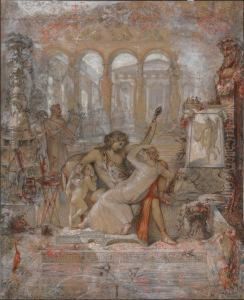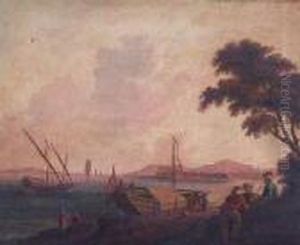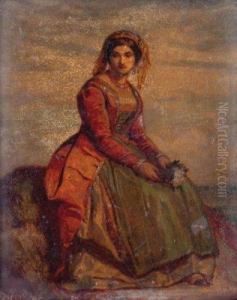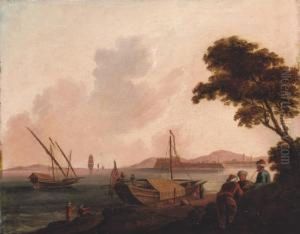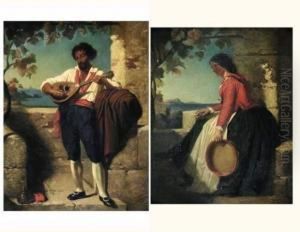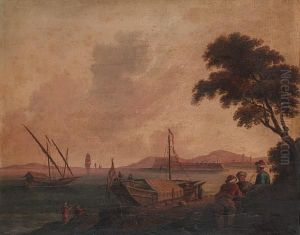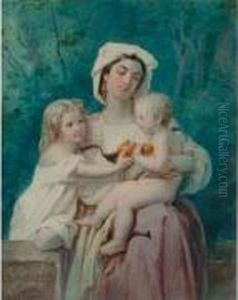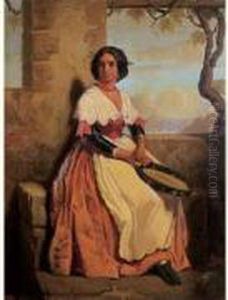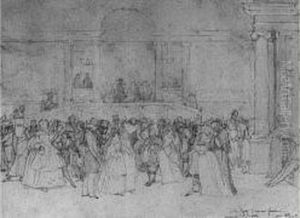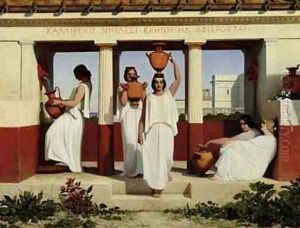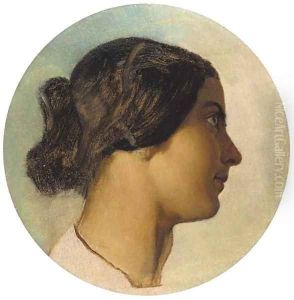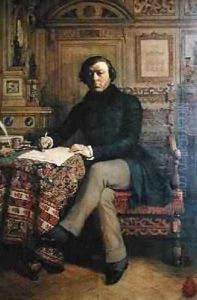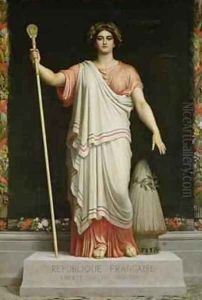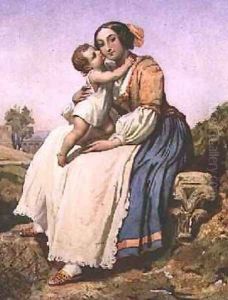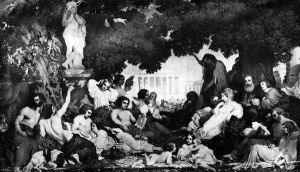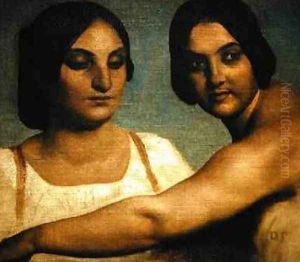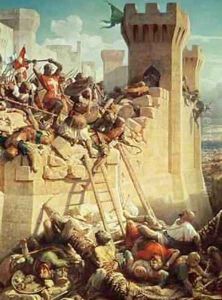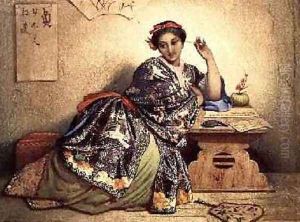Dominique Louis Papety Paintings
Dominique Louis Papety was a French Romantic painter, born on August 17, 1815, in Marseille, France. He showed an early talent for art and was admitted to the local school of fine arts in Marseille. He later continued his studies at the École des Beaux-Arts in Paris, where he studied under esteemed painters such as Léon Cogniet and Auguste-Xavier Leprince.
Papety's work is characterized by its Romantic sensibilities, with a particular interest in historical and mythological themes. One of his most significant early works is 'The Dream of Happiness', a painting that was well received and earned him the Prix de Rome in 1836. This prestigious award allowed him to study at the French Academy in Rome, the Villa Medici, where he absorbed influences from the Italian Renaissance and the ancient classical world.
During his stay in Rome, Papety traveled extensively throughout Italy, studying the works of Renaissance masters and exploring the rich historical sites. He was deeply inspired by the Italian landscape and culture, which influenced his subsequent work. His experiences in Italy culminated in a series of works that depicted scenes from the life of St. Francis of Assisi, a project that was unfortunately left incomplete due to Papety's declining health.
Papety's career was tragically cut short by his premature death. He became ill during a trip to the East and, after a prolonged struggle with illness, died on September 19, 1849, at the young age of 34. Despite his brief career, Papety's work made a lasting impact on the French Romantic movement. His paintings are known for their vivid detail, sensitivity to light and shadow, and the emotional depth of their subjects.
Today, Papety's works are preserved in various institutions, including the Louvre in Paris and the Museum of Fine Arts in Marseille. They continue to be celebrated for their beauty and historical value, offering insights into the Romantic era and the life of a talented artist whose potential was never fully realized due to his untimely death.
